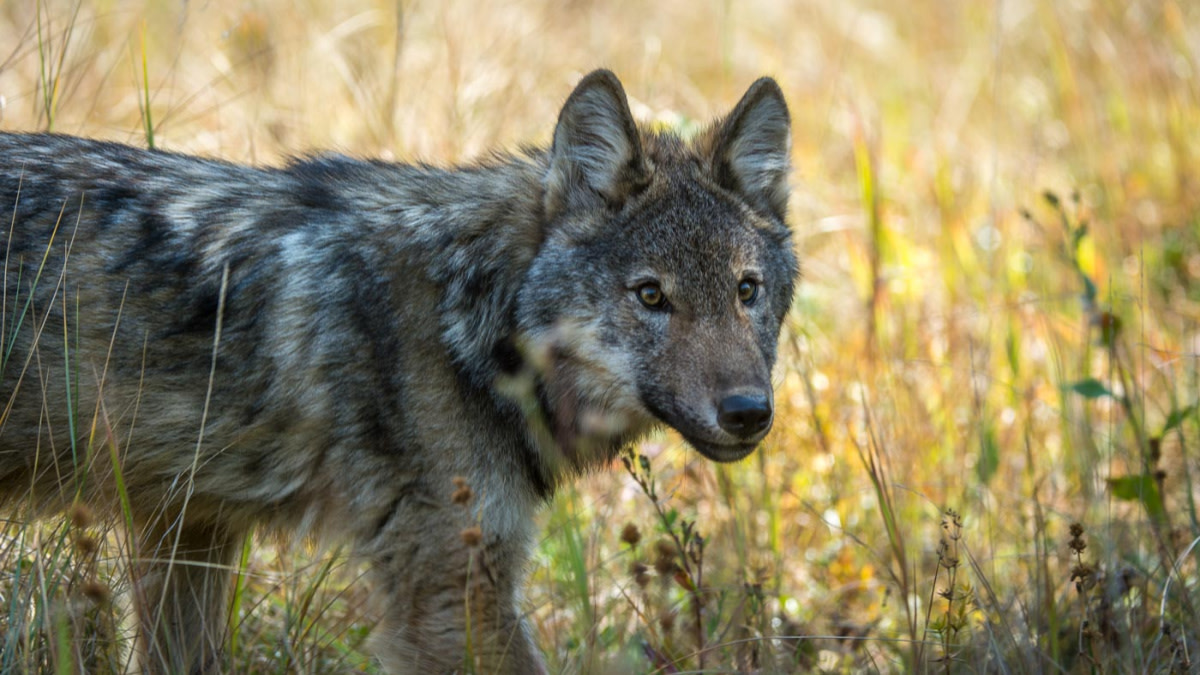
Despite their fearsome reputation, wolves are rarely aggressive towards humans. It’s usually bears or mountains lions attacking people that end up in the news. That changed early Friday morning when a wolf in Canada’s Banff National Park attacked a family of campers in their tent. According to Lesley Matheson with Parks Canada, one of the campers received injuries to his hand and arm. The entire family was transported to a Banff hospital for treatment.
And it could have been worse if not for the quick thinking and bravery of a fellow camper.
The incident took place at the Rampart Creek campground on the Icefields Parkway. Following the attack, officials closed the campground to ensure the safety of other visitors. Parks Canada staff quickly located a wolf about not far from the campground and killed it.
Based on what biologists know about wolves, this attack was very out of character. “No significant wildlife attractants or food were found inside or in the immediate vicinity of the tent,” Lesley Matheson of Parks Canada said in a press release.
Biologist Douglas Smith, Senior Wildlife Biologist with Yellowstone National Park spoke to MeatEater about this attack. “This is exceedingly rare. Wolves are the least dangerous large carnivore in North America. Cougars and bears are much more dangerous and much more likely to attack people, compared to wolves” said Smith.
Smith has spent his career studying these animals. He knows them well and he knows that the chances of getting attacked by a wolf are next to none. Smith explained that it is almost unheard of that a wolf would attack someone in a tent. According to Smith, the Rispoli family reacted correctly .“The people involved did the exact right thing. It is like a bear,”he said. “When a bear comes to drag you out of your tent you fight like hell. When a wolf attacks you, at any time, you fight like hell.”
Matt Rispoli, the camper who sustained the injuries, fought the wolf to keep it from getting to his family. In a facebook post, his wife Elisa wrote, “I laid my body on top of the kids and Matt pinned the wolf to the ground and held open its jaw with his hands, and the wolf started to drag Matt away, while I was pulling on his legs to try and get him back.”
According to Elisa, this family had a “guardian angel” who appeared in the form of Russ Fee, a neighboring camper. “I arrived on their site and their tent had been mostly collapsed and there was just a back half of a wolf sticking out from their entrance,” Fee said on a radio interview with Calgary Eyeopener.
Fee kicked the animal hard enough to startle it and make it stumble back, allowing Rispoli to get free from its jaws. “I felt like I punched someone out of my weight class,” Fee said.
Rispoli came out of the tent and joined Fee in throwing rocks at the animal to scareit away.
After completing their investigation, Parks Canada deemed the campsite safe to reopen. “Parks Canada is confident that the campground is safe to open. DNA test results have confirmed that the wolf involved in the attack was the same animal destroyed by Parks Canada staff near the campground shortly after the attack,” Lesley Matheson’s press release read.
After a series of tests, vets determined the wolf wasn’t healthy, possibly because of old age. Officials believe this was a contributing factor in the attack.
Wolf attacks are incredibly rare, but it is important to remember that they are still wild animals and capable of anything. If you are camping in areas where close encounters are a possibility, remember to practice safe camping techniques, such as securing your food and garbage.
And, if a wolf does stick its snout in your tent in the middle of the night, reference this story and remember that one swift kick in the ass can sometimes turn things around.
Note: This story has been updated with additional information.
Feature image via Tony Bynum.





